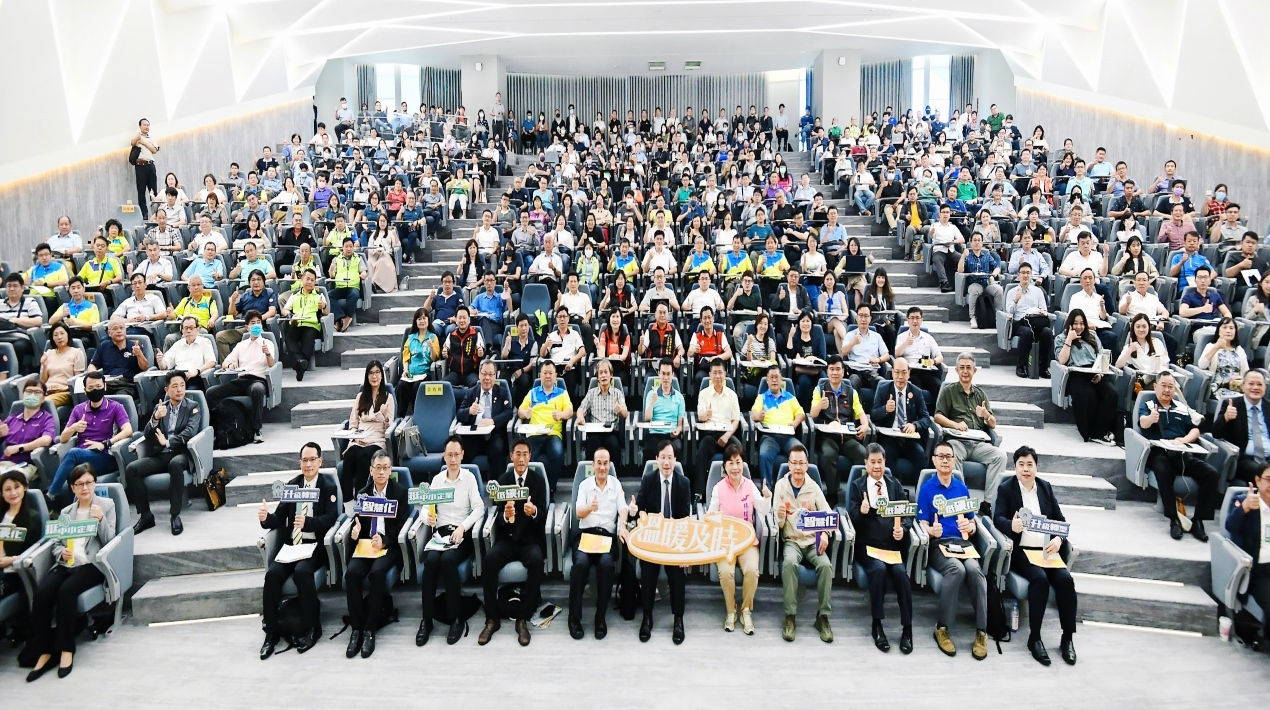
The Ministry of Economic Affairs is actively promoting measures to facilitate the transformation and upgrading of industries and small and medium-sized enterprises (SMEs) in alignment with the “Special Regulations on Strengthening Economic and Social Resilience after the Epidemic and Sharing Economic Results for All”. These efforts aim to accelerate the transition of businesses towards low-carbon production methods and help Taiwan’s economic resilience and industrial competitiveness in a post-COVID-19 world.
To ensure widespread awareness and understanding of the various measures, the Ministry of Economic Affairs organised joint briefings in the northern, central, southern and eastern districts. The Industrial Bureau, Small and Medium Enterprise Division, Commerce Department, Trade Bureau, and Central Office played crucial roles in overseeing and conducting these briefings. These briefings were designed to enable business owners from all across the country to gather information about the measures and effectively implement them.
Deputy Minister of Economic Affairs, Lin Quanneng, acknowledged that the global economy has experienced unexpected challenges due to “black swan” events. These events have had a detrimental impact on economies worldwide. Furthermore, the ongoing global digital transformation and the growing emphasis on low-carbon industries, aiming for net-zero carbon emissions by 2050, are expected to greatly influence the development of various industries. Deputy Minister Lin emphasised the need for industries to adapt and respond effectively to these emerging trends for sustainable growth and success.
The ongoing digital transformation across multiple industries is leading to a significant surge in data collection and processing requirements. As a result, the data centre business is experiencing a substantial impact due to this global digital transformation and the growing emphasis on low-carbon industries.
Demand for data centre infrastructure and services will continue to rise as organisations increasingly rely on data-driven decision-making and advanced technologies such as artificial intelligence (AI) and the Internet of Things (IoT). This poses both problems and opportunities for the sector to adapt develop, and scale its operations to meet the changing needs of the digital era.
The increasing demand for data storage and processing capabilities is driving the evolution and expansion of data centres to support the growing needs of businesses and organisations in the digital age. Additionally, the shift towards low-carbon industries is prompting data centres to adopt sustainable practices and technologies to minimise their environmental footprint. This intersection of digital transformation and the pursuit of low-carbon solutions is reshaping the landscape of the data centre industry.
The movement towards low-carbon industries around the world and the goal of reaching net zero carbon emissions by 2050 make it very important for data centres to put sustainability first. As places that use a lot of energy, data centres have a big effect on the environment, especially when it comes to power use and carbon pollution. To stay on track with the low-carbon path, data centres must use designs that use less energy, use renewable energy sources, and use improved cooling technologies.
If the industry can switch to low-carbon practices, it will not only help meet global climate goals, but it will also improve its long-term viability by lowering operational costs and meeting customers’ and stakeholders’ standards about sustainability. The future success and stability of the data centre business will depend on how well it adapts to these new trends.
Against this backdrop, the Ministry of Economic Affairs has made a special post-epidemic budget of about 31.7 billion yuan (US$ 4.5 billion) for three years to promote the upgrading and transformation of the manufacturing and business service industries, as well as to help expand overseas markets, so that the industries can build their own foundations during the current economic downturn to become more internationally competitive.
The Ministry has linked many corporate research groups to help SMEs build on their strengths. This is done by promoting help like staff training, counselling, and subsidies, among others along with key measures like low-interest loans. It seeks to empower SMEs and enable them to build on their strengths believing that these efforts will contribute not only to the development and success of individual businesses but also to the resilience and competitiveness of Taiwan’s business ecosystem.
















